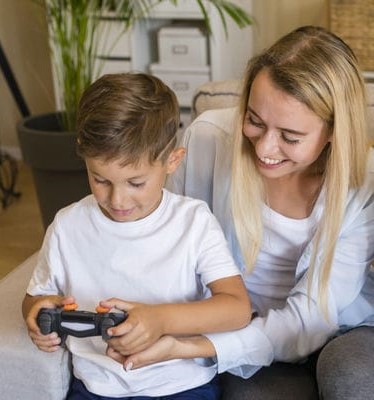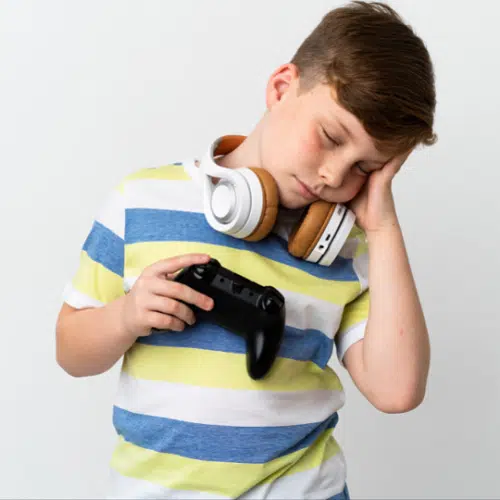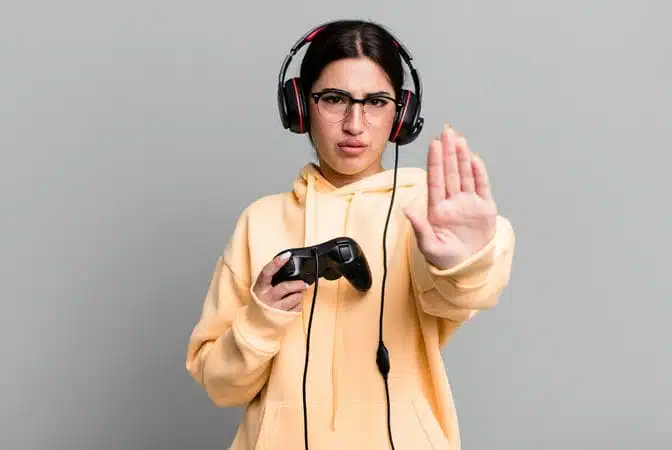On every digital storefront, you’ll consistently find violent video games right at the top of the bestsellers. But why do we love violence so much? Is it a healthy way to cope with stress and frustration, or does it make us more aggressive and anxious? This is a question that has sparked heated debates for decades, and there is no easy answer. One thing is certain: violent video games are here to stay, and we need to understand their effects better.
Although previous studies found links between violent games and a rise in stress and violent behavior, most modern studies show that, when played responsibly, violent games can actually reduce stress and be used as a positive coping mechanism.
How Do Video Games Relieve Stress? Recent study outcomes suggest that playing video games can help relieve stress and create positive emotions. When you play a video game, your brain is engaged in a task that requires your attention and focus. This can take your mind off of other stressors in your life and provide a sense of relaxation and enjoyment. Additionally, many video games are designed to be immersive and challenging, which can provide a sense of accomplishment, resilience and satisfaction when you complete a level or achieve a goal.
The key here is “responsibly”. It’s important for both gamers and parents to have a clear understanding of what stress is, the underlying causes of stress responses, how gaming can impact these responses, and what steps they can take to ensure their gaming habits are beneficial to their mental health, by reducing stress rather than inducing it. We’ll discuss all of this and more below.

The Rising Tide of Violent Games: Should Parents Be Concerned?
Of the twelve best-selling computer games of 2020, as reported by popular game distributor Steam. Seven directly included battle mechanics, ten included direct depictions of violence, and only two – Fall Guys and Among Us – could be considered specifically non-violent. (although even this is debatable, as Among Us does include animated violence)
There’s a growing trend towards violent video games, like first-person shooters and war games. While these games usually focus more on story than violence, parents are still worried about their kids playing them too much. They’re concerned about the effect on their children’s gaming habits at home.
Let’s take a deep dive into the psychology, history, and actual scientific studies on the topic to determine just how parents should help manage their kids’ game time.

Stress Responses, Aggression, and Gaming
To figure out if games cause stress, we need to know what stress is and how it works. Generally, when talking about stress, we’re talking about any activity or event that causes us to feel uncomfortable or upset. This is true, but stress is actually a little more complicated than that. It’s similar to the description of stress in physics – the forces operating on an object. In psychology, this is applied to people.
Psychology Today defines stress as “the psychological perception of pressure… and the body’s response to it,” and says that it can involve multiple biological systems including muscles and metabolism. It’s a necessary part of survival; the stress response, or “fight or flight” reflex, allows us to recognize and escape from or overcome danger as it arises.
Generally, we no longer face the day-to-day survival stresses of predators, food shortages, and weather conditions. The human stress response has evolved to react to social stressors as well. These things come in all kinds of forms, from social interaction like talking to others and resolving conflicts to worries about status and acceptance—all the way to video games.
This means that stress is built into our daily lives, and is a normal and healthy human emotion.

The Symptoms of a Stress Response
So, when we talk about stress, we’re not just talking about the things that cause it (which we call stressors), but also the way our body reacts to them. These reactions can be physical, mental, or emotional. In other words, stress is a whole package deal.
Stress responses vary from person to person and can range from a very mild response to completely debilitating reactions depending on the actual stressor. Some of the most common symptoms are:
- An elevated heart rate
- Chest pain or irritation
- Flushing and heat flashes
- Restlessness or agitation
- Fidgeting
These, of course, aren’t all of the symptoms. It’s actually only a small sample; the Mental Illness Research Education Clinic lists more than 50 individual symptoms, ranging from physical and emotional responses to behaviors that might occur as a result of stress. Among these symptoms are aggression and aggressive behaviors.
Aggression as a Stress Response
The APA Dictionary of Psychology defines aggression as “behavior aimed at harming others physically or psychologically”. It’s the “fight” part of “fight or flight;” in some instances, the brain considers the best response to a threat to be eliminating it as quickly as possible.
In terms of human psychology, this means that, when we are stressed by certain things, one of our built-in responses is to become violent toward it and other parts of our environment. This can mean being verbally abusive or even physically attacking whatever is stressing us out. While this worked great when we were fighting for our survival, in a more civilized world, this can cause serious social problems.
Not only this, but according to a study detailed by the American Psychological Association in 2004, aggression is actually a cyclical behavior. Stress triggers aggression, which stimulates the production of stress hormones. Creating more stress which can mean more aggression, and so on. When no action is taken to stop the cycle, such as removing the trigger, it can be very hard to stop the pattern of aggression.
Unfortunately, this might mean that, if we’re stressed by something we can’t fight against – say, a video game – we might let out our aggression on other things.

The Violent Game Debate: Do They Cause or Relieve Stress?
A lot of people worry that playing violent video games might make you more aggressive towards others or even yourself. This has been a concern since video games first started, but it wasn’t really studied closely until the late 1990s, with research still going today!
The History of Violent Video Games
When violent video games became popular, starting with Death Race in 1976, parents were concerned they would harm their kids’ development. These games feature personal combat, war, graphic injury, and other unpleasant scenes.
Kids who played these games were being exposed to crime, violent acts against others including assault and murder, and serious injuries, sometimes depicted with graphic detail. It was understandably disconcerting for those who associated gaming with simple pixelated Pong-like programs. There was still discontent among parents despite the introduction of the ESRB’s rating system in 1994.
In 1999, the perpetrators of the Columbine High School shooting were found to be regular players of violent video games such as Doom. A Congressional hearing was held in which President Clinton denounced violent video games and their effects on the developing minds of the youth of America. Since then, there has been a massive outcry against such games.
Studying Violent Games and Their Effects
The relationship between violent video games and violent behavior in the real world has been extensively studied. Most respected scientific outlets have a multitude of studies available to read on the subject, both in defense of and opposition to the games. They all come from credible sources like universities and wider scientific programs, but the answers are surprising.
They’re surprising because we have so few of them. The results have been consistently inconsistent, ranging from completely exonerating the genre to showing it as an extreme detriment. The latest data seems to present a mix – violent games in some situations relieve stress but can make players more aggressive in the short term.
So, is there still reason for valid concern? Despite the split answers, there are definite benefits and drawbacks to the situation to consider. Whether video games make you more stressed or help you relax depends on the games you choose and how often you play them.

The Stigma Around Video Games
In order to address gaming research, it is imperative to first debunk the widespread stigma surrounding the industry. These stigmas can make it difficult to look at research from an objective standpoint.
The current stigma around gaming, that it is a time-wasting habit or one that is causing a lack of interest in physical hobbies, stems from both a misunderstanding about gaming and the portrayal of gaming in popular media. This is understandable to a degree, as these stereotypes are based in reality. There are people for whom video games are an addictive and detrimental habit.
In spite of this, these people are few and far between. As we’ll see in studies mentioned later, most video game players have experienced no issues with developing a social circle or engaging in physical activity. Additionally, it is fair to say that gaming doesn’t simply involve pressing a button to get rewards. To succeed, many games require a complex understanding of their genre and mechanics.
To achieve a more balanced judgment about the long term effects that games may have on you or your children, it’s important to try and set aside these perceptions and start from a relatively blank slate. Think of playing video games like playing any other game in person or reading a book for fun. Anyone can play video games, and it’s no more complicated than other hobbies.
The Drawbacks of Violent Video Games
According to Very Well Mind, there are studies that have found that violent actions in video games, like fighting, can make players feel real stress. This can cause physical reactions like a faster heart rate, the production of stress hormones, higher blood pressure and even a slight increase in aggressive behavior.
Craig Anderson corroborated this conclusion in a scientific brief for the American Psychological Association in 2003. Due to video games’ link to aggressive and violent behavior, he suggested that the long-term consequences of video game violence were more substantial than previously believed. It’s important to note that this briefing does specify that the effects come from high levels of exposure.
On top of this, violent video gaming with no supervision can lead to instances of emotional suppression. This can lead to higher stress levels overall and poor mental health, as well as addictive behaviors surrounding gaming. In extreme cases, it can lead to alexithymia, which is a condition that tampers with a person’s ability to identify their emotional state and requires serious therapeutic treatment.
Another study done at the University of Wisconsin asked half of the 82 participants to play an extremely frustrating game while the other half skipped this portion. Participants were all asked to play either a nonviolent or violent game and to fill out a questionnaire about their emotional state afterward.
The study found that the frustrated players were able to relieve their stress through either game. But the players of the violent game were more likely to see the world through a more hostile lens. They recommended finding alternatives to violent games if stress relief is the main goal.

The Benefits of Violent Video Games
The problem with many of the studies defining the adverse effects of violent video games is that they are too old to be relevant today. In recent times, more recent study findings have overruled most of the previous research from the early 2000s.
Now, it’s cautiously agreed that, if moderated properly, video games – even violent titles – provide a safe outlet for relieving stress. Results of a survey that interviewed more than 1600 subjects showed that video games were most often used to cope with stressful situations and recover from them in a controlled environment.
When playing violent games, the fast pace can put players in a “flow state.” This means they’re totally focused on the game and can forget about their problems for a while. It’s a way to decompress from stress and stop overthinking things. Another APA study in 2014 found that first-person shooters especially promote three-dimensional thinking just as well as academic courses that are designed to do the same.
According to a study done by a researcher for the University of Saskatchewan, because of their clear and achievable-by-design tasks, the games also provide a sense of agency over one’s situation, which is essential for positive mental health. Having complete control over a game can help them to cope with the helplessness they feel in the real world, meaning they’re more able to handle daily responsibilities.
Furthermore, this report found that 89% of players say video games provide stress relief, while 88% say video games help improve cognitive skills. It also says 88% percent of players agree that video games bring different types of people together, while 83% say games introduce people to new friends and relationships, a five percentage point increase from 2021.
Additionally, according to recent studies, there has been no link between the playing of violent games and social isolation. Playing video games can actually be a way to hang out with people all around the world! Some violent games even have chat features and require teamwork, which can help players practice their communication and cooperation skills in a fun way. It’s like being part of a team where everyone works together to achieve victory!
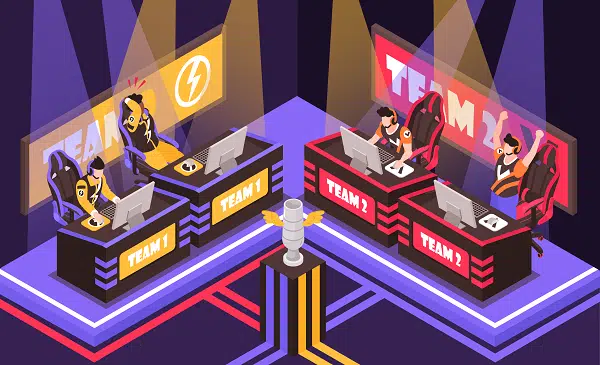
Stress-Relieving Alternatives to Violent Games
Because the real effects of violent gaming are so nuanced and varied, you may consider avoiding them entirely. Violent games may be fun in the moment, but if they are causing long-term stress, it might be worth looking into alternatives.
The wonderful thing about video games is that there is a huge amount of variety in the industry. When it comes to genre, topic, playstyle, and more detailed aspects. If you still want to play games, but you don’t want to risk violence, there are many other genres you can choose from.
Simulation Games
The purpose of simulation games is to recreate a real or fantasy world. To advance, most of these games are slow-paced and rely on repetitive or passive gameplay. Some of these games, such as popular farming simulator Stardew Valley or the Civilization series, do include some combat mechanics, though they are less directly violent.
These games are wonderful for achieving a flow state and allowing your brain to go on “autopilot.” Games like these are ideal for people who want escapism and story without having to deal with complicated gameplay or timed challenges.

Cooperative Games Keep Up Social Skills
If you’re looking to keep the social aspect, cooperative games exist in nearly every genre. These games still build communication skills and require a team effort to win, but don’t require the destructive gameplay elements.
Another benefit of cooperative gameplay is that players can help one another, offering symbolic support and enabling one another to develop problem-solving skills.
These games are excellent for times when physical interaction is limited. Such as during the pandemic/ lockdown, and for people who find in-person interaction difficult. It’s not a comprehensive replacement, but it can help to relieve the stress often associated with socializing.
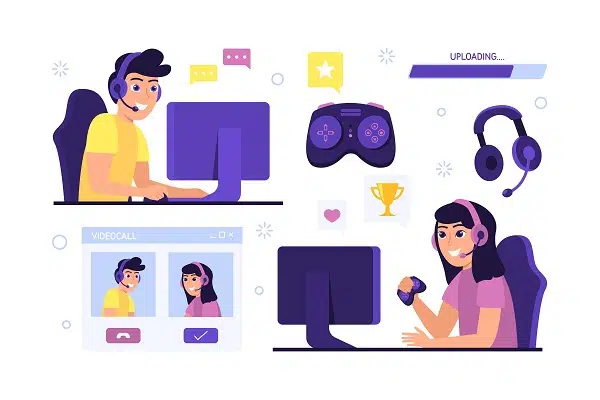
Competitive Games Provide a Healthy Outlet for Competition
In the same social vein as cooperative games, competitive games allow the same feeling of competency and agency without the violent means. Many games are designed after real-world socialization, such as golfing games and online card and board games.
The benefits of competitive games are similar to cooperative as well; they allow for safe social interaction and the development of social skills. These games are excellent to play with groups of close friends.
Purpose-Built Games Help A Player Focus
There are games that are designed solely as stress-relievers. They usually have relatively simple gameplay and goals, and are accompanied by soothing music and visuals. Purpose-built games are usually single player and without much of a continuous story, instead working off of a simple, easily achievable reward system.
These games are wonderful in situations where a more engaging or complicated game would be overwhelming. They’re also fantastic stress relievers for those who struggle with anxiety and other mental health issues.
Educational Games Are Often Overlooked
An educational video game allows you to learn without the pressure of an academic environment. This makes it easier to engage with and retain the information presented. Unfortunately, there aren’t many education-focused games for children. One popular educational game is Minecraft Education, which parents could consider.
You can find programs like this on educational websites and at schools. Cnet and NPR also have lists of games that are both educational and fun to play, including resources on where to find them.
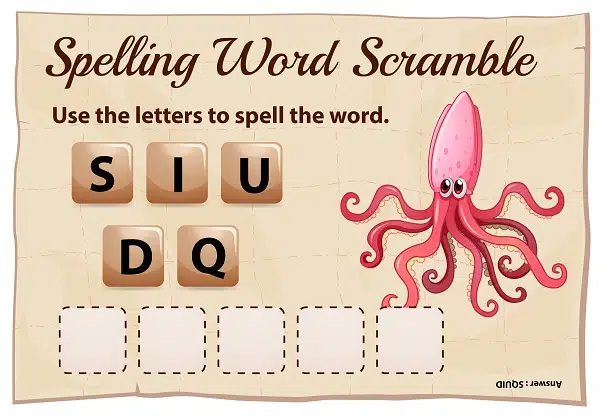
How to Encourage Safe Video Game Play
If the effects of video games are so varied and nuanced, what does that mean for those who play them or want to see their children play them? Like any other habit, the key is moderation. Whether you are a parent or simply seeking to help yourself, there are several ways to make sure that your gaming experience is a stress-relieving and beneficial one.
Set Boundaries for Your Children using Limit Launcher
As with any other aspect of life, a habit, either recreational like gaming or functional like brushing your teeth, needs boundaries and standards in place to be effective. One of the most important aspects of keeping a safe and healthy gaming habit is setting strict, understandable limits. These should, at the very least, cover the basics.
Screen Time
Set a limit for how many hours you or your child can spend gaming per day. If you’re monitoring a child, this might mean using a parental-control software, like Limit Launcher. This ensures that you’re able to spend the rest of your day productively. On top of this, scheduling time to play means that you can game without guilt and enjoy it fully.
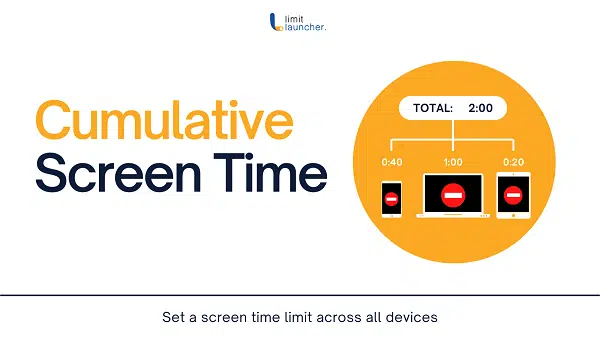
Rating Checks
As mentioned earlier, the ESRB sets out a rating system for video games that details the kind of content featured. If you’re keeping an eye on a kid’s video game habits, make sure the games they’re playing are suitable for their age group. You can do this by only buying games that are rated below a certain level, or by checking the content warnings for each game individually.
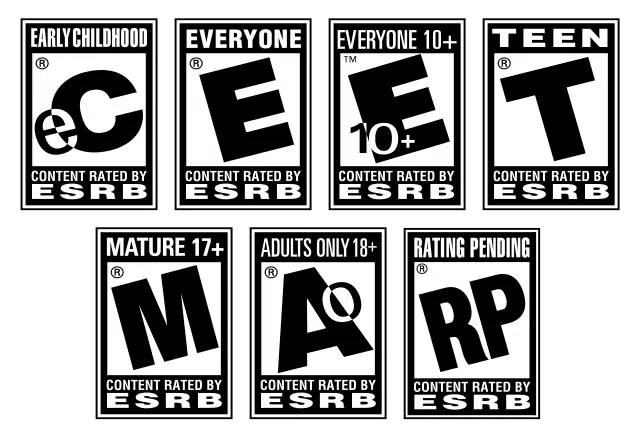
Out of Bound Games
Coming off of that, clearly define what games you or your child are not to play, and why. Make sure that, if you’re explaining this to your child, you tell them exactly what it is about the genre or title that makes it unplayable for them. Expressing specific concerns means they’re less likely to be resentful of being unable to play.
Timing
Make sure that you have rules and when they can play. For instance, you might say that no one is allowed to game while eating, or that your child can only play games after a certain chore is done.
It’s also important to note that there may be times when these rules flex slightly. Your situation is constantly changing, so your ability to regulate your child’s gaming habits along your boundaries will vary. This means you should recognize that a brief slip is not the end of the world. Don’t let a lapse in the rules cause you the stress you’re trying to avoid.
How Limit Launcher Makes the Problem Easy
Boundaries, time limits, rating checks, and the other techniques listed above are fantastic ways to help your children set up a healthy relationship with gaming. But most parents find it hard to find the time to properly research and implement those methods on their own.
Limit Launcher makes all of this effortless for you, by automatically controlling:
- When and how much time your child can spend playing video games? (without placing any limits or interfering with other tasks, like schoolwork or research!)
- Social media and online video platforms like YouTube. This is important as a lot of children when not gaming themselves, watch others game.
It takes less than 5 minutes to set up and never needs any more maintenance! No more checking in every day to make sure your parental control software is up-to-date, or that newly installed games or apps are being blocked, because of Limit Launchers automatic game detection.
Best of all, you can control all of this from a single app on your phone! This gives you access to all the tools you need to help your child play healthily. Furthermore, we will never collect any information on your child’s habits or personal details, unlike other apps.
Ensure Game Choice Variety
This is another step that builds on vetting the games that you purchase for yourself or your child. Instead of focusing solely on the rating, experts recommend that you focus on the type of games you’re buying as well. Having a variety of games to choose from means that you can pick an appropriate game for the kind of stress you want to relieve.
Make sure that you include games that are designed to be relaxing, like simulators or purpose-built games, as well as some that require you to be more actively engaged. This could mean having games on multiple platforms that require different skill sets. It’s also an excellent idea to include games that require physical activity such as virtual reality titles or games with motion controls.
It’s also a great idea to include non-electronic games in the roster. Card and board games or even a puzzle game are an excellent way to play together as a family without looking at a screen. Tabletop gaming is also an excellent way to develop storytelling skills and encourage creativity.

Encourage Social Interaction
A massive part of stress relief is having a support network in place to help your child through the worst of it. When it comes to developing a healthy gaming habit, this means that your child shouldn’t always play alone. Instead, try to encourage games that are cooperative, and play with friends when possible.
If you’re regulating a child’s gaming habit, this can mean playing games with them. Harvard Health advises that parents learn to use the programs and consoles that their children enjoy and join them to better understand their interests. It’s also a great way to bond with your child, which can significantly reduce family-related stress.
On top of this, try to engage in social activities outside of gaming. Join local clubs or community events, encourage your child to participate in extracurricular activities at school. Generally try to find at least one activity you can do regularly in-person to keep your social skills sharp.

Stress, Entertainment and New Technology
In the end, video games are just another form of entertainment. They do have massive impacts on culture and social change and have created a new creative industry that would have been impossible to predict fifty years ago when the first games were being created. Nevertheless, they have the same impact as the film and television industry, or the book industry.
The fact that they’re relatively new is what sets video games apart. We’ve had much more time to study the psychological effects of other forms of entertainment, and we understand them significantly better than we currently understand video games. As we learn more about them, we’ll be better able to pinpoint exactly what kinds of video games or habits cause stress and mitigate them.
Until then, we’ll have to rely on information as it becomes available and adjust our responses accordingly. Video games are not something you have to be afraid of, even violent games. They’re just something you have to be aware and conscious of. So, try not to stress about you or your child picking up a controller.








